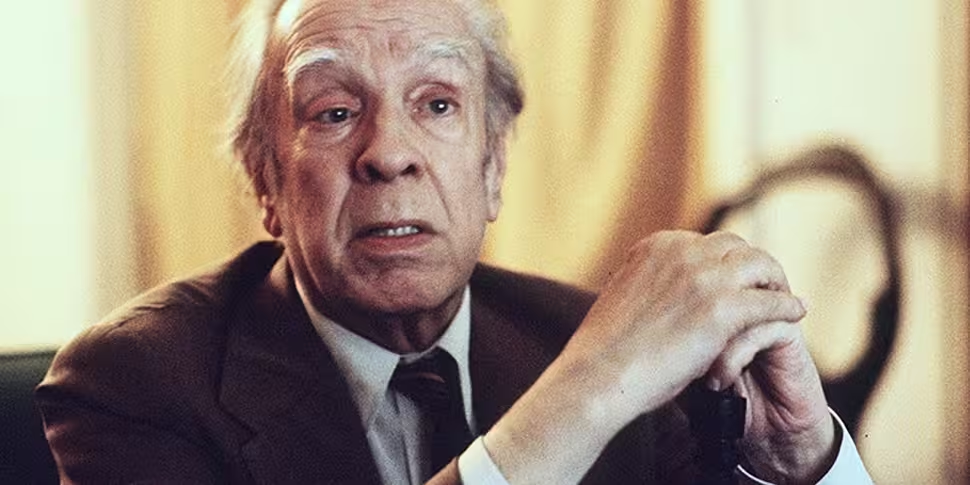On August 24th 1899, the great author Jorge Luis Borges was born in Argentina.
During his lifetime, he wrote collections of short stories and poetry that changed the face of writing on the South American continent, with authors such as Gabriel García Márquez, Julio Cortázar and Mario Vargas Llosa all acknowledging the debt they owe him.
Advertisement
He never won the Nobel Prize, despite being in contention for it with many of his works, but in typical fashion, he had a witty quote to cover up the fact that the decision to omit him from that great list of writers did irk him: "not granting me the Nobel Prize has become a Scandinavian tradition; since I was born they have not been granting it to me".
Despite being born to an Argentine family with English roots, Borges had a strong connection with Ireland, mainly through the literature and philosophy that he read in his father's library in their family home on Tucumán street in Buenos Aires.
That was to be a major part of his childhood, and it was there that he first learned of the views of George Berkeley. At the age of just nine-years-old, he translated Oscar Wilde's 'The Happy Prince' into English, and had it published in a local journal under his name. Given his young age, people assumed that it was the work of his father, who was also called Jorge.
His love affair with Joyce lead him to begin working on a book in his early career that would do for Buenos Aires what the Irishman did for Dublin and give it a mythology, a project that he eventually abandoned in favour of shorter fiction, but he did travel to Ireland in 1982 to take part in a Bloomsday celebration, honouring the iconic Irish author.
As a result of this affection for the country and its authors, his works are littered with Irish references. In his short story 'The Shape of the Sword', the protagonist is from Dungarvan, while in 'An Examination of the Works of Herbert Quain', the story opens with a line that states that Quain recently died in Roscommon. Similarly, the story 'The Theme of the Traitor and the Hero' also takes place in Ireland, set in 1824.

Image: Eduardo Di Baia / AP/Press Association Images
His two most famous collections of short stories were Fictions and The Aleph, both of which contain any number of tales that have gone on to be hugely influential. 'The Garden of Forking Paths' tells the story of a labyrinth not in a physical sense, but one that bifurcates in time, creating several timelines that exist simultaneously. Hugh Everett wrote a celebrated thesis on that idea, introducing the many-worlds interpretation and opened it with a line from Borges' story, showing the wide reaching audience who were touched by the literary great.
His short stories range from being studies of time and reality, to the nature of writing to detective fiction. His great ability was to be able to make any subject accessible through that short medium, replete with metafictional and inter-textual references that are sometimes a guide to further reading, or other times simply a prank on the reader. More than a few of his early fans ended up in a book shop asking for a copy of The Approach to Al-Mu'tasim, a work which never existed.
His references to the great literary figures of the West showed an author who was more focused on the world outside South America than many of his contemporaries. His huge success brought the attention of Europe and the rest of the world to a place that they thought they had discovered, whose history they thought they had invented in Latin America. As they were being forced to realise that it had always been there, independently of them, a suitably Borgesian question was being asked of them: Who was dreaming who?
His Irish connection then, was an intellectual one that he hoped would give other authors the chance to do what the Irish had done with the English language. Citing Shaw, Berkeley and Swift, he said "it was sufficient for them to feel Irish, to feel different, in order to be innovators in English culture. I believe that we Argentines, we South Americans in general, are in an analogous situation; we can handle all European themes, handle them without superstition, with an irreverence which can have, and already does have, fortunate consequences".
Where to Start
'The Garden of Forking Paths'
'Tlon, Üqbar, Orbis Tertius'
'Pierre Menard, Author of the Quijote'
'The Library of Babel'
Essential Works
Labyrinths, New Directions (1964)
The Aleph and Other Stories, trans. Andrew Hurley, Penguin Classics (2004)
Collected Fictions, Deckle Edge (1999)









